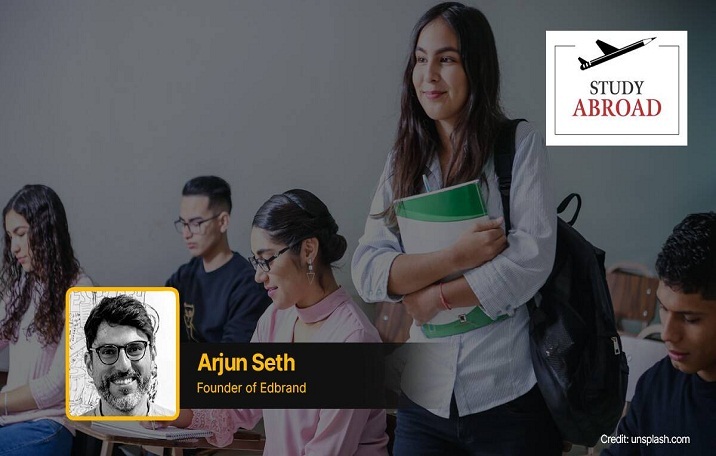In my 23 years as a mentor to students applying abroad for undergraduate courses, I thought I had seen it all. The pattern has been this: high school students applying to highly-selective universities and going through an unreasonable degree of stress during the application process. The students tend to compare themselves to their peers. The situation only gets worse with over involved parents, who stoke the fire to an unbearable degree.
One bright but concerned student reached out with an intent to work with me and confessed how working in such an environment made her think that she wasn’t good enough. The recent pandemic changed the ways in which students pursued higher education, increasing the levels of stress to newer heights and highlighting a genuine problem within the system.
But the process of college admissions wasn’t supposed to cause such distress. College admissions committees wanted to design a process that allowed applicants to showcase a holistic profile, so that they enjoy the process of discovering colleges that work for them. Students were required to share information — both subjective and objective — about their grades, test scores, extra-curricular activities and writing samples as opposed to tests or cut-offs. It was supposed to celebrate strengths, interests, achievements and backgrounds of a diverse range of students.
Over time, the college admission process was misinterpreted by counselors, students and parents. It became a frenzied race to make it to the highest-ranked college instead of about finding the right-fit of a college. Social pressures fueled a sense of negativity, inferiority and envy, adding to the stress. Even high achievers today feel less accomplished intellectually, despite having top grades on their transcripts. Videos of successful candidates on Youtube and stellar profile summaries of seniors on “chance me” discussion threads aggravated this sense of underachievement.
But let’s get to the basics. For a 17-year old, the thought of stepping out of her comfort zone and settling in a campus community halfway across the globe is daunting enough. The pressure to apply to schools that they have heard of leads to a situation where they are not open to exploring a wide range of choices. This leads to a rush for popular schools and an increase in competition for those particular schools.
My focus, on the other hand, is about discovering the right-fit colleges and giving meaningful tips on how to set expectations while deciding on a college list. In this regard, I posed some questions to Paz Pitarque, the head of undergraduate admissions at Tufts university in Massachusetts, America.
Asked what the main cause of stress is for undergraduate students, he said, “Oftentimes, students are asking us on the admissions side what they should write in their essays or how many extracurricular activities they should have. But it’s never really about that. We want to learn from and about them! In fact, we will read whatever they send to us so stressing on what they think we want to see is an unnecessary and common stressor.
For steps that students can follow for their mental well-being, Pitarque emphasised on breaks.
“It is important for students to find something to do as a distraction from the stressors of applying to colleges. I am certain students can identify what that break would be for them – Watching Netflix or hanging out with friends are totally valid responses. While college applications are definitely time-consuming, there will come a time when not everything revolves around that. Learning to disconnect from that even before you get into college matters,” he said.
As per a 1993 book written by Alfie Kohn, while home and school should be places where students discover who they are and what they are interested in, they instead become spaces for students to perform for their parents and teacher to “get the appreciation or grade”. They turn into the people they think their parents and teachers want them to be, instead of being creative, critical thinkers in their own right. In this way, parental expectations and grades reduce a student’s sense of control over their own fate and can induce a blind conformity to others’ wishes. Colleges look at the academic potential of an applicant and try to figure out if the student will be able to thrive in their intellectual environment. But that’s not it, their creative hobbies, extracurricular pursuits – what makes them three-dimensional personalities – are of equal importance.
Courtesy : The Indian Express








